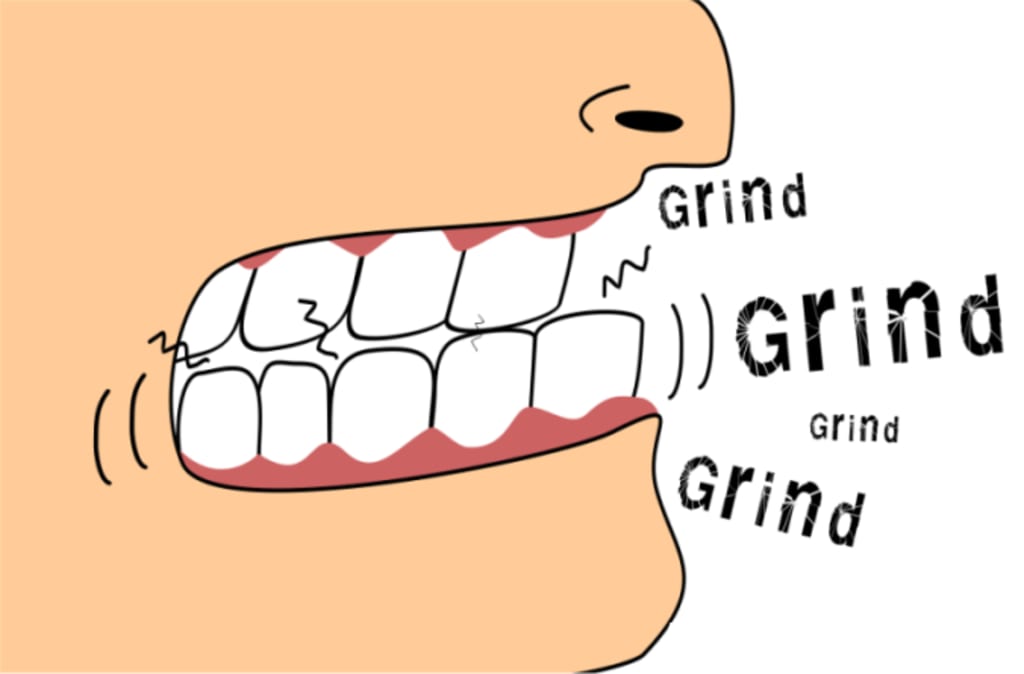How Dangerous Is Bruxism and How to Get Rid of It?
Bruxism is a condition when a person grinds or clenches the teeth with the help of jaw muscles

This can happen when a person is awake (awake bruxism) or during sleep (nocturnal bruxism). A person with bruxism may gnash all their teeth or just the front teeth. Bruxism can be classified as a stress disorder. When bruxism is serious, it can lead to headaches, sleep disturbances, etc. Nocturnal bruxism is a particular type of sleep-related disorder. People who clench their teeth during sleep are more prone to snoring and also suffer from sleep disorders, such as sleep apnea.
Most people with bruxism don’t even know that they clench their teeth until some symptoms appear. Sometimes the dentist may notice certain symptoms and surprise the patient with a bruxism diagnosis. That’s why regular dental check-ups are so important.
Causes of bruxism
There are two types of bruxism, awake and nocturnal. Both of them are of various origins, but the exact cause of bruxism is not fully understood. Researchers think that bruxism may have several underlying factors. Awake bruxism can be related to strong negative emotions like anger, stress, anxiety, tension, or frustration. It can also be a method of deep concentration or a way to cope with some unpleasant emotions.
Talking about nocturnal bruxism, it is considered a movement disorder that is related to sleep. If people are clenching or grinding their teeth while sleeping, they are also more prone to other sleep disorders like sleep apnea (pauses in breathing) or snoring. Nocturnal bruxism can also be an activity that is related to arousals during sleep.
What complications can bruxism cause?
In most cases, mild bruxism doesn’t cause any severe complications. But if bruxism is quite severe, it can lead to a very serious condition which is called temporomandibular joint disorder (TMJ). It is a disease when the jaw performs a clicking noise that can be heard when the mouth is open or closed.
Bruxism can also lead to some dental issues. It can cause damage to dental implants Brooklyn, crowns, root canals or dentures, and loose or even broken teeth. In some cases, bruxism can damage jaws, change the face shape, and weaken hearing.
Bruxism treatment methods
If the person has mild bruxism, treatment may not be required. But people with severe bruxism may need medical help to treat headaches, jaw disorders, damaged teeth, and other unpleasant symptoms.
There are several treatment methods for bruxism, but very few clinical studies confirm that any particular treatment is successful. If bruxism is associated with a sleep disorder, your dentist or another healthcare provider may refer you to a sleep specialist for an examination. This testing may include a sleep study to discover whether the person grinds the teeth and sleep apnea is present. In case of serious anxiety or other psychological problems, referral to a psychiatrist or licensed therapist may be required.
Dental prophylactic measures may include oral protective devices to prevent tooth damage caused by grinding or dental correction of teeth that were too worn and interfered with proper chewing of food.
Other treatment methods to prevent or relieve bruxism include:
- Stress management
- Contingent electrical stimulation. It is a procedure that suppresses jaw muscle activity during sleep
- Medications (muscle relaxants or anti-anxiety drugs)
- Botox injections for those who do not respond to other treatments
There are some conditions (for example, neurological disorders or GERD) that are related to bruxism and their treatment may ease the severity of grinding. In addition, some medications can have some side effects that result in bruxism. In this case, their discontinuation may be required to eliminate the bruxism signs. You may also need to solve the sleep-related problems that you may experience.
About the Creator
Amelia Grant
I am journalist, and blogger.






Comments
There are no comments for this story
Be the first to respond and start the conversation.